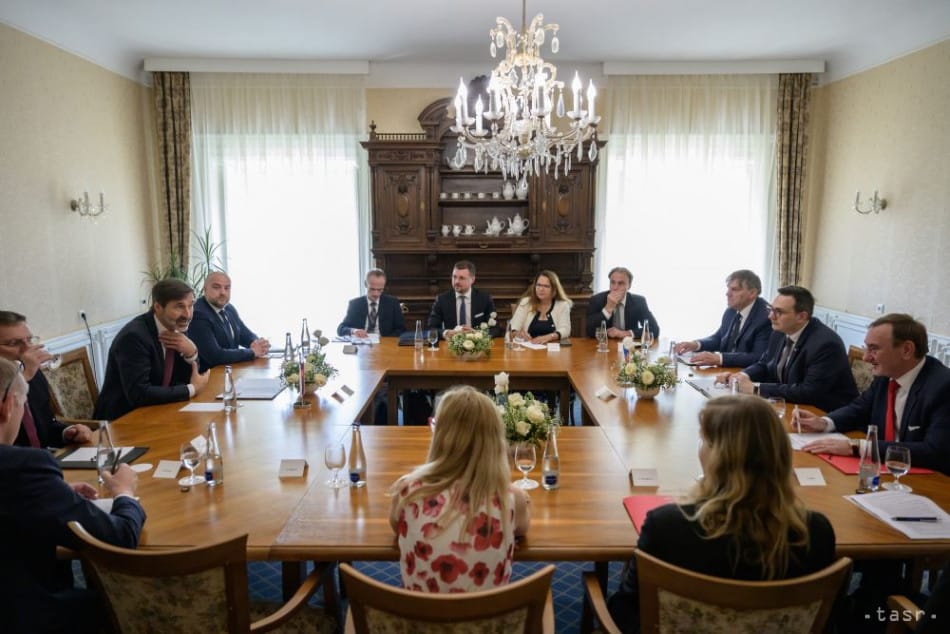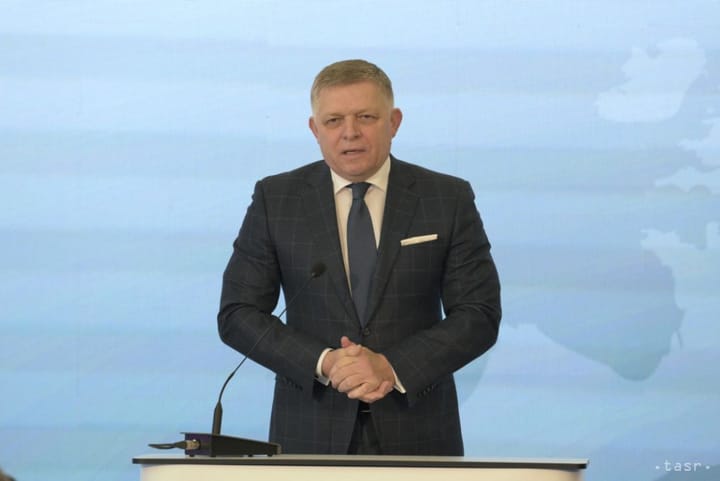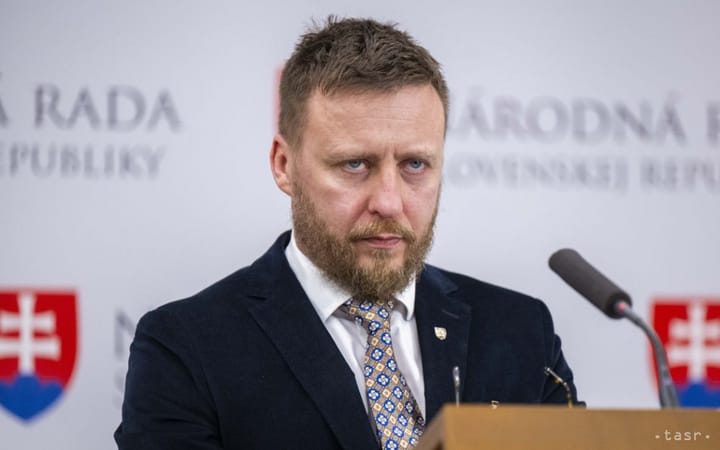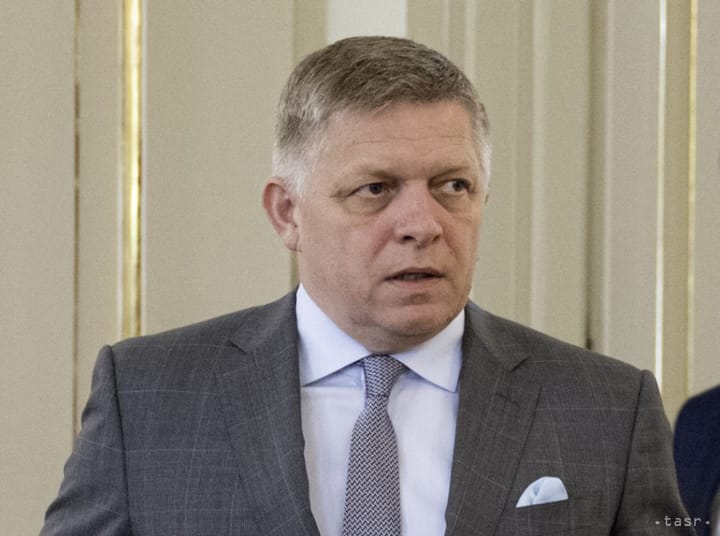Slovakia and Czech Republic Prepare Several Agreements on Bilateral Cooperation

Topolcianky, 10 June (TASR) - Slovakia and the Czech Republic are preparing a number of steps that will boost their cooperation and make life easier for their citizens, stated Slovak Foreign Affairs Minister Juraj Blanar (Smer-SD) following a meeting with his Czech counterpart Jan Lipavsky in Topolcianky (Nitra region) on Tuesday.
According to Blanar, both countries are working on recognition of e-prescriptions, while an agreement on cross-border cooperation between emergency services is nearing its final signatures. The agreement has already been approved by both governments and will enter into force after ratification by the Slovak and Czech parliaments. "Thanks to this, Czech paramedics will be able to help people in need in Slovakia and vice versa," said Lipavsky.
The Czech minister also stated that a police cooperation agreement is being finalised and that joint arms projects are being prepared. "These will improve the defence capability of both our countries under significantly better conditions than if we were to carry them out separately. We've also succeeded in simplifying the recognition of official documents. These are all steps that help to strengthen and develop our relations, and it's important that we're working on them," he said.
Regional cooperation in the Austerlitz format (S3: Austria, the Czech Republic, Slovakia) and the current EU agenda, including energy security and illegal migration, were other topics of discussion. In addition, the ministers spoke about the situation in Ukraine, the Middle East and the Western Balkans.
They also spoke about cooperation within the Visegrad Four (V4: the Czech Republic, Hungary, Poland, Slovakia). "I can say that cooperation at the V4 level is continuing and that we're able to come together in the areas that unite us. The most-recent time was during the vote on an asylum-migration pact when the V4 clearly expressed its position that we don't agree with the way that it is has been proposed and that we'll have to look for other solutions," said Blanar.
According to Lipavsky, the further functioning of the V4 needs to be built on realistic foundations and on addressing the problems that the partners in this grouping are facing. "We can state the fact that at the moment we don't have a common stance within the V4 regarding the biggest geopolitical problem that we're facing in Europe, which is Russia's aggression against Ukraine. We do have consensus that it is a violation of international law," said Lipavsky.



